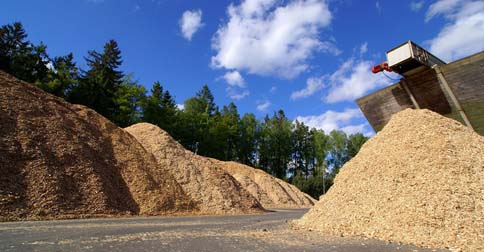The Maine biomass industry – once a shining example of the potential for biomass for many states – has struggled in 2016, with the shuttering of two biomass plants in March.
Now, state and industry leaders are convening in a series of panels to evaluate how they can work together to assist Maine’s biomass production and reverse the decline.
The bipartisan panel is comprised of representatives from state agencies, state legislators, stakeholders in energy and forest products, and the assistant director for operations in the physical plant at Colby College in Waterville. The panel met for the first time in the first week of August and plans to meet again on August 16.
The issue at hand is the current state of biomass production in Maine — specifically, what steps can be taken by state authorities and industry leaders to promote biomass and save the approximately 1,300 jobs that depend on biomass in the state.
According to one lawmaker, the biomass industry is especially important to the future of Maine’s economy. “The work we do here will be a crucial step in shaping the future of our state’s forest products industry,” said Jeff McCabe (D-Skowhegan), the House Majority Leader and co-chair of the panel. “A sustainable future for the biomass industry is key to strengthening rural Maine’s natural resources-based economy, preserving jobs and our traditional industries in the parts of our state hit hardest by the recession.”
Biomass is integral to Maine’s economy. It accounts for roughly a quarter of the state’s power supply – one of the highest shares of state energy production from biomass in the nation – and offers a way for Maine to capitalize on its lush natural resources in the form of the state’s ample forests.
The state legislature as a whole views biomass as important enough to justify creating a controversial bailout worth $13.5 million over two years for the ailing industry. The bipartisan panel was commissioned at the same time as the bailout, in an effort to provide long-term solutions.
“We need to use this commission as the long-term roadmap,” said Dana Doran, with the Professional Logging Contractors, a major industry player in the state. “That [bailout] was a short-term Band-aid. There’s a reason why we’re here and that is so we don’t have to repeat this.”
The panel is expected to issue a report to the state legislature in December.


